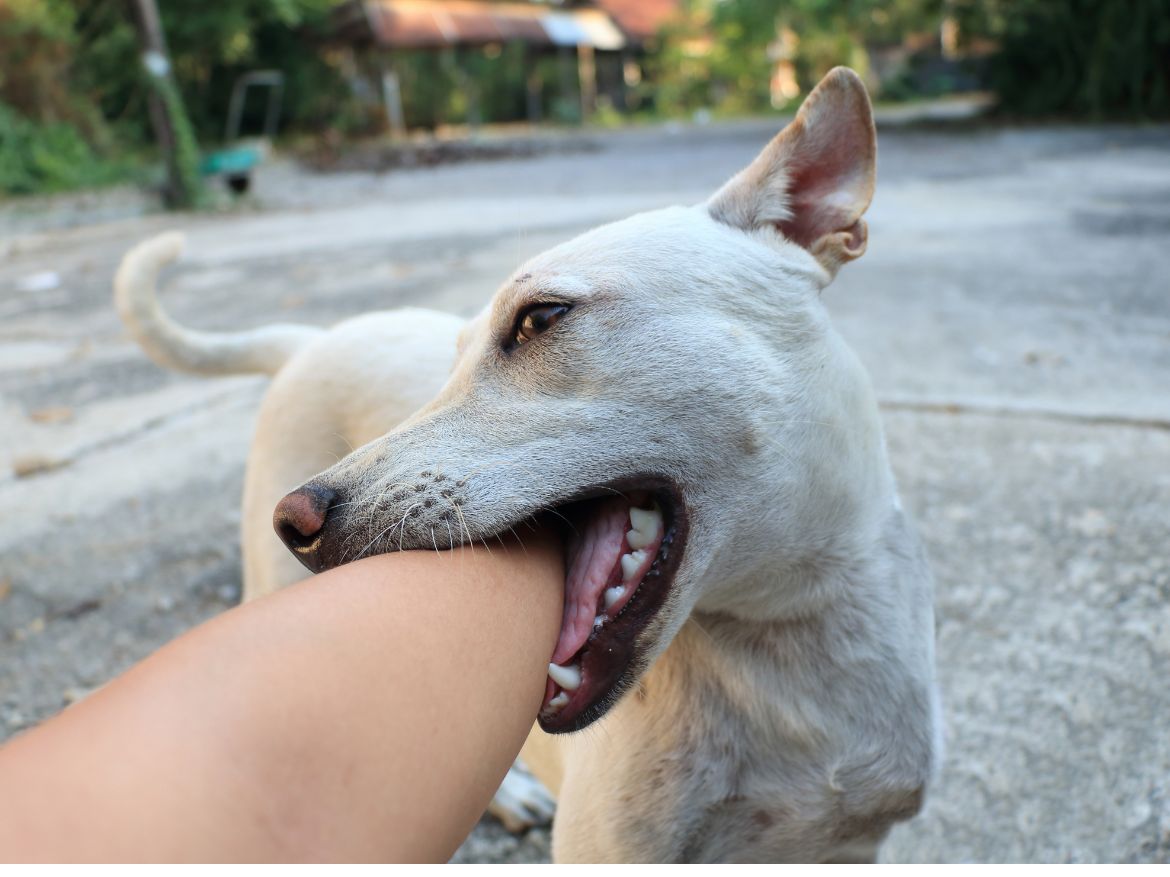
What Should You Do If You Are Bitten by a Dog?
Dog bites can result in serious injuries, infections, and emotional trauma. If you or a loved one has been bitten by a dog, it is crucial to take immediate action to ensure proper medical care, prevent complications, and protect your legal rights. Understanding the steps to take following a dog bite can help you recover physically and financially while holding the responsible party accountable.
1. Seek Immediate Medical Attention
Dog bites can cause deep wounds, infections, nerve damage, and even rabies transmission. The severity of the injury depends on the size of the dog, the force of the bite, and the location of the wound. Regardless of how minor a bite appears, it is crucial to seek medical care immediately to prevent complications.
Steps to Take:
- Stop the Bleeding: Apply direct pressure with a clean cloth or bandage to control bleeding.
- Clean the Wound: Wash the area thoroughly with soap and warm water to reduce the risk of infection.
- Apply Antiseptic: Use an antibiotic ointment to prevent bacterial infections.
- Cover the Wound: Wrap the injury with a sterile bandage to protect it.
- Visit a Doctor: A healthcare professional can assess the wound, determine if stitches or a tetanus shot are needed, and prescribe antibiotics if necessary.
- Watch for Infection: Symptoms such as redness, swelling, pus, or fever indicate an infection, which requires immediate medical attention.
2. Identify the Dog and Its Owner
It is essential to identify the dog that bit you and gather information about its owner. This information is crucial for reporting the bite, determining liability, and verifying the dog’s vaccination history.
Information to Collect:
- Owner’s Name and Contact Information: Obtain the name, phone number, and address of the dog owner.
- Dog’s Vaccination Records: Ask if the dog is up to date on rabies and other vaccinations.
- Witness Statements: If anyone saw the attack, get their contact information and statement.
- Photographic Evidence: Take clear pictures of your injuries, the dog, and the location of the incident.
If the dog appears to be a stray, report the incident to local animal control so they can locate the dog and determine if it is a rabies risk.
3. Report the Dog Bite to Authorities
Reporting a dog bite is a critical step in protecting public safety and establishing a record of the attack. Many states and municipalities have laws requiring individuals to report dog bites.
Where to Report:
- Animal Control: They will investigate the incident and determine if the dog poses a danger to others.
- Local Health Department: If rabies exposure is a concern, health officials will monitor the situation.
- Police Department: In cases of severe injury, aggressive behavior, or negligent pet ownership, law enforcement may intervene.
Filing a report ensures that the incident is documented and may help prevent future attacks by the same dog.
4. Document Your Injuries and Expenses
Proper documentation is essential for medical treatment, insurance claims, and potential legal action. Keep detailed records of your injuries and any expenses incurred due to the dog bite.
Key Documents to Keep:
- Medical Records: Doctor’s reports, treatment plans, prescriptions, and receipts.
- Photographs: Take daily pictures of your wounds to track healing progress.
- Lost Wages Documentation: If the injury prevents you from working, keep records of lost income.
- Pain Journal: Note any pain, discomfort, emotional distress, or psychological trauma related to the incident.
A well-documented case strengthens your claim if you need to seek compensation for damages.
5. Understand Your Legal Rights
Dog bite laws vary by state, but most jurisdictions hold dog owners responsible for injuries caused by their pets. Depending on the circumstances, you may be entitled to compensation for medical expenses, lost wages, pain and suffering, and emotional distress.
Legal Considerations:
- Strict Liability vs. One-Bite Rule: Some states have strict liability laws, meaning dog owners are responsible regardless of prior incidents. Others follow the one-bite rule, which requires proof that the owner knew the dog was dangerous.
- Negligence Claims: If the owner failed to restrain the dog or violated leash laws, they could be held liable for negligence.
- Homeowner’s Insurance: Many dog bite claims are covered under homeowner’s insurance policies, providing compensation for medical expenses and damages.
- Statute of Limitations: Each state has a deadline for filing a personal injury claim, so act promptly.
Consulting a personal injury lawyer can help you understand your rights and determine the best course of action.
6. Take Preventive Measures to Avoid Future Bites
While legal action can hold dog owners accountable, taking steps to prevent future bites is essential. If you frequently encounter dogs, practice caution and educate others about responsible pet ownership.
Safety Tips:
- Avoid Unfamiliar Dogs: Do not approach or attempt to pet a strange dog without the owner’s permission.
- Observe Body Language: Signs of aggression include growling, baring teeth, stiff posture, and raised fur.
- Teach Children About Dog Safety: Educate kids about proper behavior around dogs, including not pulling tails or ears.
- Secure Your Own Pets: If you own a dog, ensure it is well-trained, socialized, and leashed in public areas.
- Report Dangerous Dogs: If you notice an aggressive dog in your neighborhood, inform local authorities to prevent future attacks.
Protect Your Health and Legal Rights
Being bitten by a dog can be a traumatic experience, but knowing what steps to take can help you recover and protect your rights. Seeking immediate medical care, reporting the incident, documenting injuries, and understanding your legal options are all essential to handling a dog bite case effectively.
If you or a loved one has been injured in a dog attack, contacting LA Personal Injury Attorneys can help you secure the compensation you deserve. Our experienced legal team will guide you through the process and fight for your rights. Contact us today for a free consultation.


